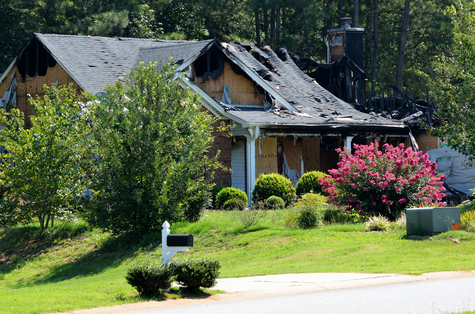Property damage can happen unexpectedly, leaving you with financial burdens and emotional stress. Whether it’s damage caused by natural disasters, accidents, or negligence, dealing with the aftermath can be overwhelming. This is where a lawyer for property damage comes into play, helping you navigate legal complexities and secure the compensation you deserve. In this article, we’ll provide an in-depth guide to understanding when and why you might need a property damage lawyer, how they can assist you, and what to look for when hiring one.
What Does a Property Damage Lawyer Do?
A property damage lawyer specializes in handling legal disputes and claims related to damaged property. Their primary role includes:
- Evaluating Claims: Assessing the extent of the damage and determining the value of your claim.
- Negotiating with Insurance Companies: Ensuring fair compensation from insurers who may try to underpay or deny your claim.
- Filing Lawsuits: Taking legal action against responsible parties if necessary.
- Advising Clients: Providing guidance on legal rights and options.
These lawyers handle various types of property damage cases, including:
- Residential property damage (e.g., homes, apartments)
- Commercial property damage
- Vehicle damage
- Damage caused by storms, fires, floods, or vandalism
Common Scenarios Requiring a Property Damage Lawyer
1. Natural Disasters
Hurricanes, tornadoes, earthquakes, and floods can cause significant damage to properties. While insurance policies often cover such events, disputes over coverage limits, exclusions, or delays in payout are common.
2. Accidents
Incidents such as car crashes damaging private property or construction mishaps affecting neighboring buildings may require legal intervention to hold the responsible parties accountable.
3. Vandalism or Theft
If your property is intentionally damaged or stolen, a lawyer can assist in recovering damages or filing claims against perpetrators.
4. Negligence
Cases where another party’s negligence leads to property damage, such as faulty plumbing causing water damage, often involve legal claims.
5. Insurance Denials or Disputes
When insurance companies deny claims, undervalue damages, or delay payouts, hiring a lawyer ensures your rights are protected.
How a Property Damage Lawyer Can Help
1. Claim Assessment
Lawyers assess the full extent of your damages, considering factors like repair costs, replacement values, and additional expenses (e.g., temporary relocation).
2. Negotiating with Insurers
Insurance companies often prioritize minimizing payouts. A lawyer’s expertise ensures your claim is accurately represented and fairly negotiated.
3. Legal Representation in Court
If negotiations fail, a property damage lawyer can file a lawsuit and represent you in court, using evidence and expert testimony to strengthen your case.
4. Handling Paperwork
Property damage claims involve extensive documentation, including insurance forms, repair estimates, and proof of ownership. Lawyers ensure all paperwork is accurate and submitted on time.
How to Choose the Right Property Damage Lawyer
1. Experience and Expertise
Look for a lawyer with proven experience in property damage cases. Check their track record and specific expertise in handling similar claims.
2. Client Reviews and Testimonials
Research online reviews and testimonials to gauge the lawyer’s reputation and client satisfaction.
3. Fee Structure
Understand their fee arrangement. Many property damage lawyers work on a contingency basis, meaning they only get paid if you win your case.
4. Communication Skills
Choose a lawyer who communicates clearly, listens to your concerns, and provides regular updates on your case.
Frequently Asked Questions (FAQs)
1. When Should I Hire a Property Damage Lawyer?
You should consider hiring a lawyer if:
- Your insurance claim has been denied or undervalued.
- The responsible party refuses to pay for damages.
- You’re unsure about your legal rights or next steps.
2. How Much Does a Property Damage Lawyer Cost?
Costs vary based on the lawyer’s experience and the complexity of your case. Many offer free consultations and work on a contingency fee basis.
3. What Should I Do Before Hiring a Lawyer?
- Document the damage with photos or videos.
- Keep all receipts, repair estimates, and correspondence with insurers.
- Gather any contracts, agreements, or policies related to the claim.
Tips for Filing a Property Damage Claim
- Act Quickly: Report the damage to your insurance company as soon as possible.
- Document Everything: Take detailed photos, videos, and notes about the incident and resulting damages.
- Stay Organized: Keep a file of all documents related to your claim.
- Avoid Admitting Fault: Be cautious with your words when communicating with insurers or responsible parties.
Conclusion
Navigating the complexities of property damage claims can be daunting, especially when insurers or responsible parties fail to cooperate. A skilled lawyer for property damage can make all the difference, ensuring you receive the compensation you deserve while minimizing stress. If you’re facing a property damage issue, consult an experienced lawyer today to protect your rights and interests.
Have questions or need further assistance? Reach out to a qualified property damage lawyer near you to get started on your case.






